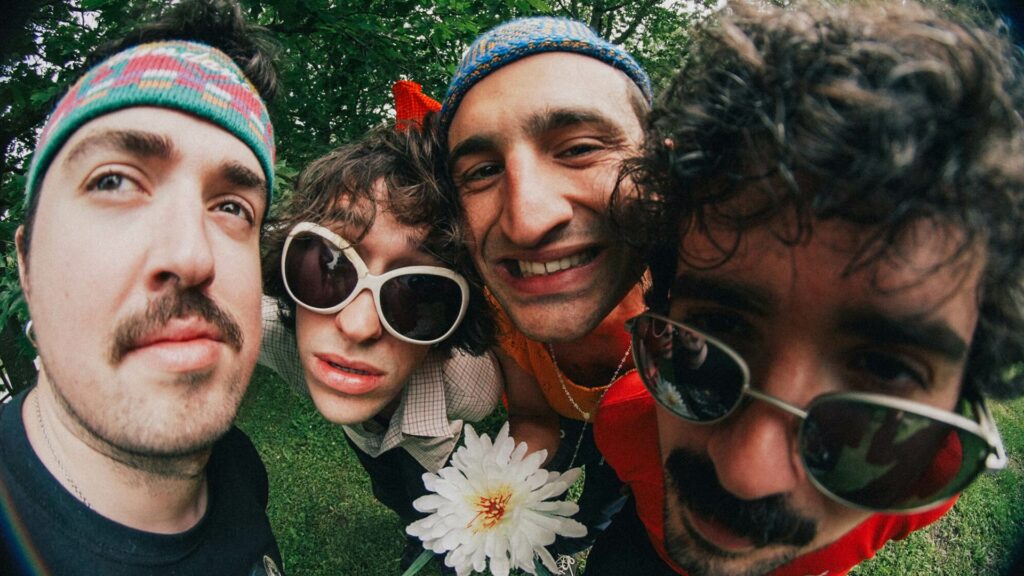Dan Demon, from Alternative Hip Hop band Ceiling Demons, opens up and addresses his personal experience with depression, the healing power of music and his dedication to mental health awareness charities like CALM.
Depression has long been present in my life. Some of my early teenage years were spent wrestling with ideas of self-harm and self-hate. I went darkest moments in my early-mid 20s, where thoughts of suicide came together with social phobia and self-isolation, resulting in some of my darkest moments.
I lost five good friends to suicide and I’m aware of other friends losing friends. So the harrowing statistic that suicide’s the biggest killer of men under 50 in the UK isn’t just a fact for me, but a haunting reality. Having been on an emotional rollercoaster during these times of loss, I believe love and understanding is the only way I have managed to cope with this kind of bereavement. It never gets any easier to experience, but you kind of learn how to accept it. When you’ve shared similar dark thoughts to those that you’ve lost, you quickly realise that life is so very fragile. Just one crazed moment can end up being the catalyst that sees you leave this realm. But can it be prevented?
For years I dealt with mental health issues by bottling up emotions and self-medicating with excessive amounts of alcohol. I had a hell-bent need for escapism; a need to be taken away from the harshness of the world. That’s how you see the world when you’re depressed – there’s a constant dark cloud looming over your head and an impending sense of doom. It’s challenging to get up in the morning, and getting to sleep in the first place is a struggle. Your routine’s non-existent, you’re constantly fatigued, and the thought of doing almost everything daunts you. It’s like you’re continually climbing the darkest of mountains, which you know will be in vain. So you choose to avoid even looking at it. Instead, you hope that your consciousness will just switch off so that you can lie, comatose, in a deep sleep for the foreseeable future. Flaking out on plans and becoming ever passive in conversations, you withdraw into a safety shell. Being in control of your home is the only thing left for you to cling on to. The worthlessness becomes overwhelming, and that’s when death can seem like the easier option.
For me, music has always been medicine for these mental conditions. It might not cure you, but it sure helps you to feel less alone. Music can provide much comfort and reassurance to one’s soul by capturing themes and feelings that are trickier to handle in any other medium. Even music that might be perceived as ‘depressing’ can, in fact, offer an empathetic hand, helping the listener to identify or even escape with the artist.
A watershed moment for me in my mental health journey was finding the strength to seek professional help, along with talking about my problems with loved ones. I’m an identical twin, which is complex in itself as it can spawn mental issues regarding oneself and one’s sense of identity. Not many people understand or realise this, but that’s a whole other story. Having a twin is both a blessing and a curse; you end up sharing similar experiences and dark thoughts.
You’d probably assume that, as twins, we’d be open to talking about our emotions together, but this was rarely the case in the past. Whether it was due to our upbringing or environment, we’d never talk in-depth about any of the things that leave you feeling exposed or vulnerable. We’d often embrace the British ‘stiff upper lip’ and ‘northern banter’ clichés to paper over the cracks. But our avoidant mentalities inevitably cracked as difficult situations arose, friends passed away, and our battles with depression grew more overpowering.
During a particularly dark period, my brother sought guidance from a confidential online mental health service. Admitting that he was struggling with chronic depression to an anonymous stranger helped his confidence. This lead to his decision to take things a step further, accessing the mental health services available at our university, where you could speak face-to-face with counsellors. His positive experiences convinced me to give these services a try, and it was a massive relief. The unburdening feeling of speaking openly about my mental fragilities, instantly lift some of the weight I was carrying. After this, I felt encouraged to talk much more honestly about suicide, anxiety and depression, especially with my brother. We then went on to pour these emotions into our newest musical exploration, Ceiling Demons, to try to address these problems in an artistic form.
Coupling sincere words, delivered in a rhythmic flow, with emotively produced beats from our good friend George, acted as a catalyst, transforming negatives into positives. We chose to use masked imagery based on Oscar Wilde’s concept that ‘man is least himself when he talks in his own person. Give him a mask, and he will tell you the truth.’
Since these beginnings, the project’s grown and developed in many ways. It has seen repeated loss and found new meanings. We just hope that it has helped comfort some delicate souls along the way. It has given us a platform to raise awareness and work for causes that we feel passionate about, including charities like CALM, Papyrus, Mind and Men Tell Health. It has also allowed us to express ourselves and represent fallen friends and our hometown in our own unique way. And for that opportunity, one can only be thankful.
“You can’t beat death, but you can beat death in life, sometimes.” Charles Bukowski
Stay in touch with Ceiling Demons:
Website
Spotify
Facebook
Instagram
YouTube
Twitter



